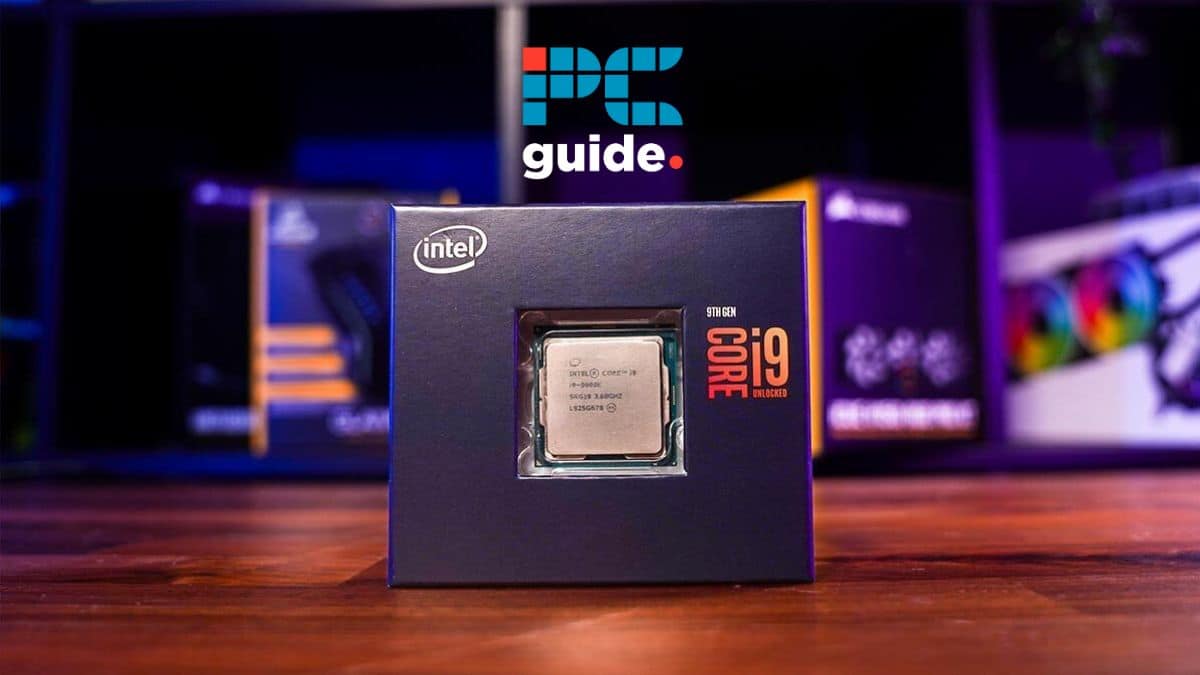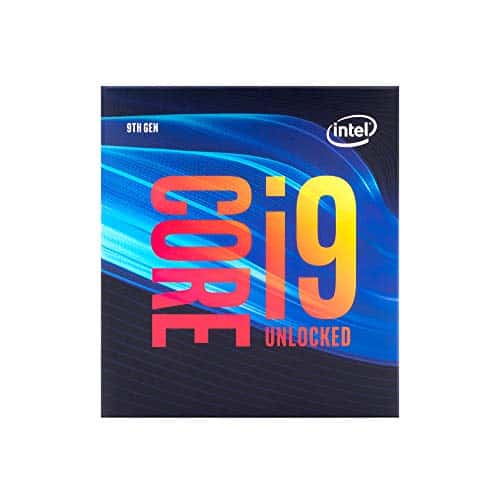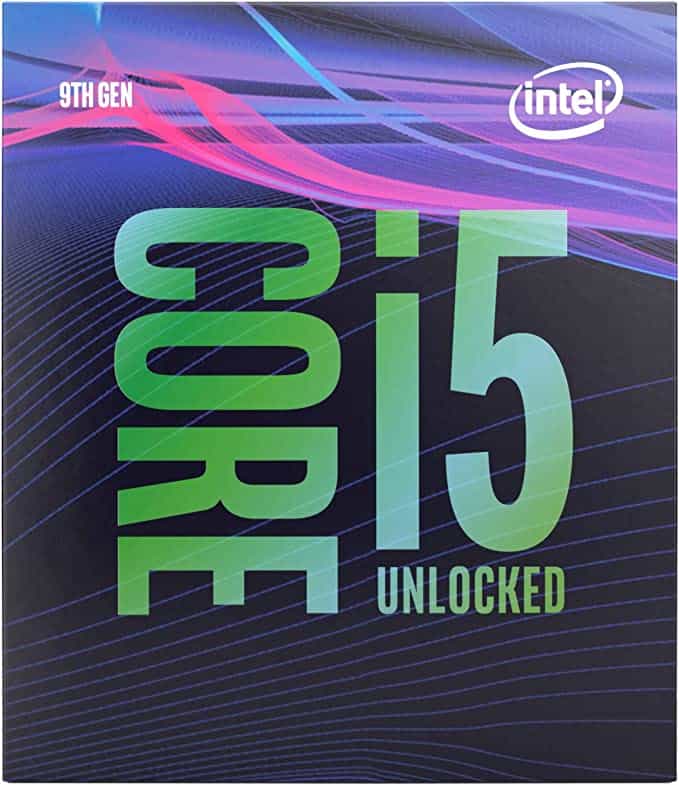Last Updated on
Building or purchasing a PC with the latest specifications can be very costly, but one thing that most people don’t give credit to is that the previous generation is still alive and kicking and an excellent option to make a budget build. That said, the highest you can go with an LGA 1151 socket is the i9-9th generation and those processors were reigning at their times and can still handle most modern-day workloads – if you temper your expectations.
That said, to kick off your buying journey in the best possible way, we’ve put together this in-depth guide that lists different options, their details, and pros and cons to help you make an informed decision.
If you don’t have time to read the full article, we have handily outlined our products at a glance so you don’t have to comb through everything to get our best recommendations. With that being said, let’s get into it.
Products at a glance
-
Best LGA 1151 CPU
Intel Core i9-9900K
- Cores: 8
- Threads: 16
- Boost speed : 5.00 GHz
- Base speed: 3.60 GHz
- L3 Cache: 16 MB
- TDP: 95 W

-
Best i7 CPU for LGA 1151
Intel Core i7-9700K
- 8 Cores
- 3.60 GHz up to 4.90 GHz / 12 MB Cache
- Intel UHD Graphics 630
- Intel Optane Memory Supported
-
Best i5 CPU for LGA 1151
Intel Core i5-9600K
- Cores: 6
- Threads: 6
- Boost speed : 4.60 GHz
- Base speed: 3.70 GHz
- L3 Cache: 9 MB
- TDP: 95 W
-
Best mid range LGA 1151 CPU
Intel Core i5-9400F
- Cores: 6
- Threads: 6
- Boost speed : 4.10 GHz
- Base speed: 2.90 GHz
- L3 Cache: 9 MB
- TDP: 65 W
-
Best budget LGA 1151 CPU
Intel Core i3-9100F
- Cores: 4
- Threads: 4
- Boost speed : 4.20 GHz
- Base speed: 3.60 GHz
- L3 Cache: 6 MB
- TDP: 65 W
How we picked
After considering multiple factors, such as price, compatibility, threads and cores, and unlocked multiplier, and comparing various processors based on these factors, we came up with a list of CPUs that we think are the best to be paired with an LGA 1151 socket when building or upgrading a PC.
Best LGA1151 CPU
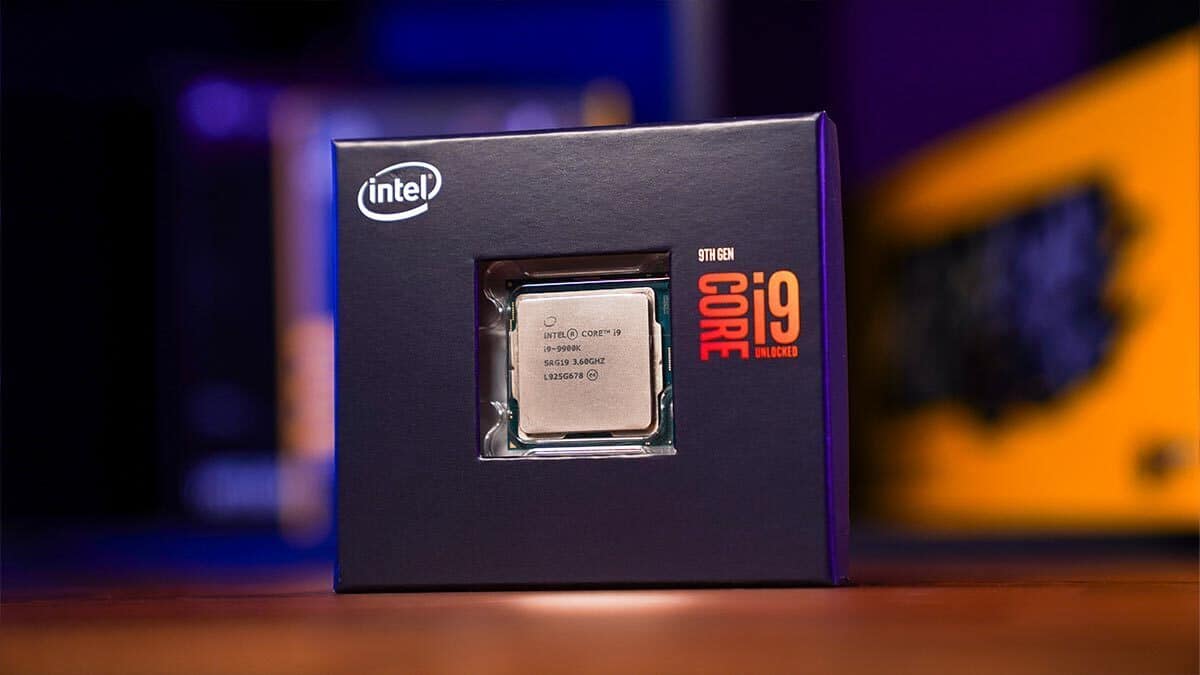

With great power and decent efficiency, the i9-99ooK proves that age doesn’t matter, even in 2024 this CPU stays relevant.
- Gaming performance still holds up for mid-range gaming in 2024
- Inexpensive due to age
- Plenty of hardware support
- Stuck on older LGA 1151 platform
- Not as powerful as modern mid-range options
- Not ideal for new builders
If you’re looking for the best CPU that is compatible with an LGA 1151 socket, consider checking out the Intel i9-9900K processor.
First off, this processor has eight cores and 16 threads, a base frequency of 3.60 GHz, and a turbo frequency of 5.00 GHz. What this means is that this CPU should deliver top-notch general and in-game performance. The 16 threads should enable it to handle running tasks in parallel without sacrificing performance, and you can turn up the clock speed if you feel like your setup could use more power.
That said, Intel processors with the “K” moniker come unlocked from the manufacturer. This means that if you have the right tools and expertise, you can increase the clock speed beyond 5.00 GHz, but that comes with its share of risks. The heat produced could damage the internal workings, so we recommend investing in an adequate cooler before overlocking this powerhouse.
Regarding compatible memory, this CPU supports up to 128 GB of DDR4 2666 MHz RAM. What this means is that you can stack multiple memory sticks, as long as your motherboard can support it, and increase the overall performance of your build. If you’re looking to get your hands on the best DDR4 RAM available on the market, check out our guide.
Other than that, it features a 16 MB L3 cache. What this translates to in terms of performance is that you should experience quick processing and fast access times. Caches hold frequently accessed data and are located close to the cores. This reduces the distance the data travels from storage to the CPU, resulting in better performance.
It also sports an integrated Intel UHD 630 graphic card, and while that may be enough for basic tasks such as displaying a Word document, for high-definition gaming, you’ll need to pair it with a discrete GPU. You don’t necessarily have to pair it with an over-the-top card, such as an RTX 4090, as that’ll cost way more than an entire budget build.
There are excellent pocket-friendly graphic cards under $400 that could go well with the i9-9900K. Once you’ve sorted that out, you can expect the i9 9900K to perform well at 1080P and even 1440P during demanding games like Shadow of the Tomb Raider and God of War.
Overall, this CPU was the reigning king of its time, and while newer and more powerful processors may overshadow it now, it is still a reliable option for gaming, processing, and other tasks, especially if you want a power CPU under a budget.
What users say about the i9-9900K
One owner of the i9-9900k on Amazon stated the CPU was better than they imagined “This processor is not what I thought it would be. It is better than I could have imagined. First the packaging is awesome. Next it installed in my XPS 8930 very easily as I already had updated the bios for support. I enabled overclocking in bios and started it up. Instant first operation was 4700 mghz across all cores with dells basic oc”
Best i7 CPU for LGA 1151
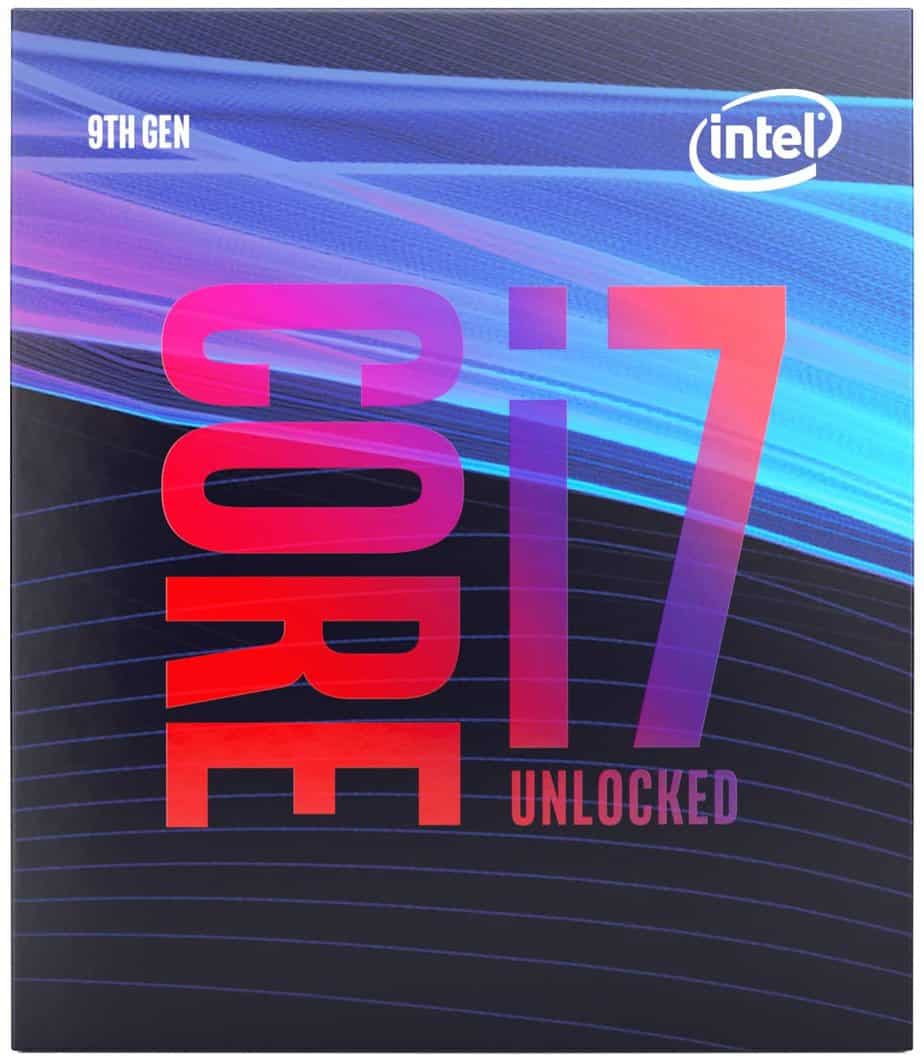
- 8 Cores
- 3.60 GHz up to 4.90 GHz / 12 MB Cache
- Intel UHD Graphics 630
- Intel Optane Memory Supported
The i7-9700K offers even better value for money, however, it does trade off slightly less cores. The 9700K is still a fantastic pick if you’re looking to save some money over the i9.
- Only 0.1 GHz lower boost clock than the i9-9900K
- Supports 128 GB RAM
- 12MB Intel Smart Cache
- Supports 4K at 60 Hz
- Not as future proof as our i9 top pick
- Still pricy as considered highly overclockable and no longer in production
If you’re looking for the best i7 processor compatible with an LGA 1151 socket, check out the i7 – 9700K.
Let’s kick things off with some general specifications. This CPU has eight cores, eight threads, a 3.60 GHz clock speed, and a turbo clock speed of 4.90 GHz. You might notice that it has eight fewer threads than our top pick, but that doesn’t mean the performance difference is leagues apart. That said, there will be some differences when handling parallel tasks, but a faster SSD, RAM, and overclocking should make up for the difference.
Another thing to note is that its base clock speed is the same, and the turbo clock speed is only 0.1 GHz slower. This difference is negligible and should deliver top-notch performance across various processes. So, the question is, why would you opt for this processor and not go for the top pick if the performance difference isn’t a lot? It all boils down to the costs. At the time of writing, our top pick is going for $458, while the i7-9700K will set you back by around $293. The difference comes down to $165, which is a good amount of money you can redirect towards a better SSD or RAM.
Like the i9-9900K, the i7-9700K can also support a maximum of 128 GB of RAM with a maximum frequency of 2,666 MHz. This should be more than enough for multitasking and single-core tasks such as gaming. That said, you can also boost the performance by pairing it with the best RAM for i7-9700K and leaving nothing on the table.
According to this processor’s specification page, it is capable of supporting 4K (3840 x 2160) at 60 Hz. What this means is that if you have a 4K monitor, this CPU should be able to handle and work at that resolution. However, suppose you plan on gaming at 4K resolution with high settings. In that case, you most likely will experience performance degradation and a possible bottleneck depending on what GPU you pair this with.
All in all, this CPU brings good features and functionalities to the table, and the price bracket it comes in makes it one of the best CPUs compatible with the LGA 1151 socket.
What users say about the Core i7-9700K
One 9700K owner on Amazon wrote: “I built two with this CPU processor last year about this time. Very happy with the speed this has starting up and shutting down, and running programs like nobody business. I’m not a gamer, but I could play games with the video cards I put in on both of them – EVGA GeForce 1660 Super 6GB”
Best i5 CPU for LGA 1151
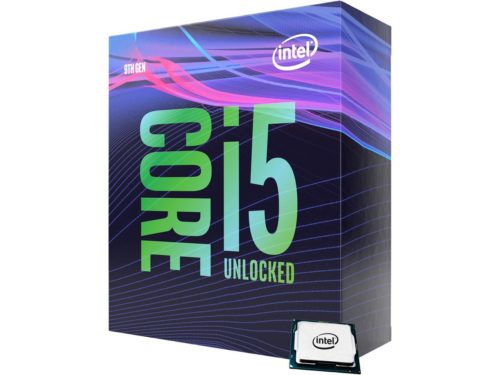
- Processor Base Frequency 3.7 GHz
- DDR4 Support
- 64 GB Graphics Video Max Memory
- 6 Cores / 6 Threads
This 6-core mid-range CPU offers excellence at a mid level if you don’t want to break the bank on high-end hardware.
- Paired with a strong Z370 board, it has decent headroom for OC-ing
- 6 cores
- 0.1 GHz faster clock speed than 9900K and 9700K
- Features the same memory format as high-tier cards
- Not great for threaded workloads
- Not as good for gaming as the 9700K – thanks to the slower core speed
If you’re looking for an LGA 1151 compatible CPU that is light on the pocket but is still efficient for most tasks, the i5 9600K might be the option for you.
For starters, the i5 9600K has six cores, six threads, and a base clock speed of 3.7 GHz. While these specifications might not seem a lot, its base clock speed is 0.1 GHz faster than the i7-9700K, and let’s not forget that it can be overclocked. On top of that, the 6-threaded architecture should be able to handle general tasks and some medium-level intensive tasks; running heavy applications and playing games in parallel might bring it to a stop despite its boost clock of 4.6 GHz.
Regarding gaming performance, it has a decent single-core rating, which is just slightly less than that of the i7-9700. This means that if you pair it with a decent GPU—and there are plenty of options, like the best GTX 1660 graphics card—you’ll be gaming at high framerates in no time.
If you have the right gear, you can overclock this CPU to hell and back. It’ll take an advanced board like the MSI MEG Z390 Godlike, but if you’ve got it, you can reach stable frequencies as high as 5GHz. Even before any overclocking, this i5’s clock speed specs are pretty impressive. In fact, it has a 0.1GHz faster base frequency than both the i7 9700K and our LGA 1151 CPU champion, the i9 9900K.
One thing to note is that while this processor offers decent gaming performance when it comes to general functionality, it might be a bit slow for some due to the absence of hyperthreading. However, if you’re planning on running multiple heavy apps at the same time, this CPU should be able to handle light processing tasks without a hitch.
So, to review, we’ve got good gaming performance, low price, and decent light processing capabilities. This checks off plenty of boxes in our books and makes it one of the best LGA 1151 CPUs you can buy.
What users say about the i5-9600K
One verified purchaser of the 9600K on Amazon had this to say: “I built my current system with the Core i5 9600K, using a 1TB NVMe M.2 PCIe Gen3x4 ssd as the main drive and a Samsung 1TB evo ssd for secondary. This is the fastest pc I have ever owned, with remarkably fast boot up and loading speeds. The M.2 ssd makes boot time from the appearance of the bios screen to Windows between 4.2 seconds the fastest and 4.8 seconds being the slowest…remarkable.
The gameplay is fantastic. I mostly play FPS & 3rd person shooters, and a few other types of games like the Tomb Raider series. It may of course be my imagination, but everything appears to be faster, sharper, and extremely fluid. I’m sold on this cpu!”
Best Mid-range LGA 1151 CPU
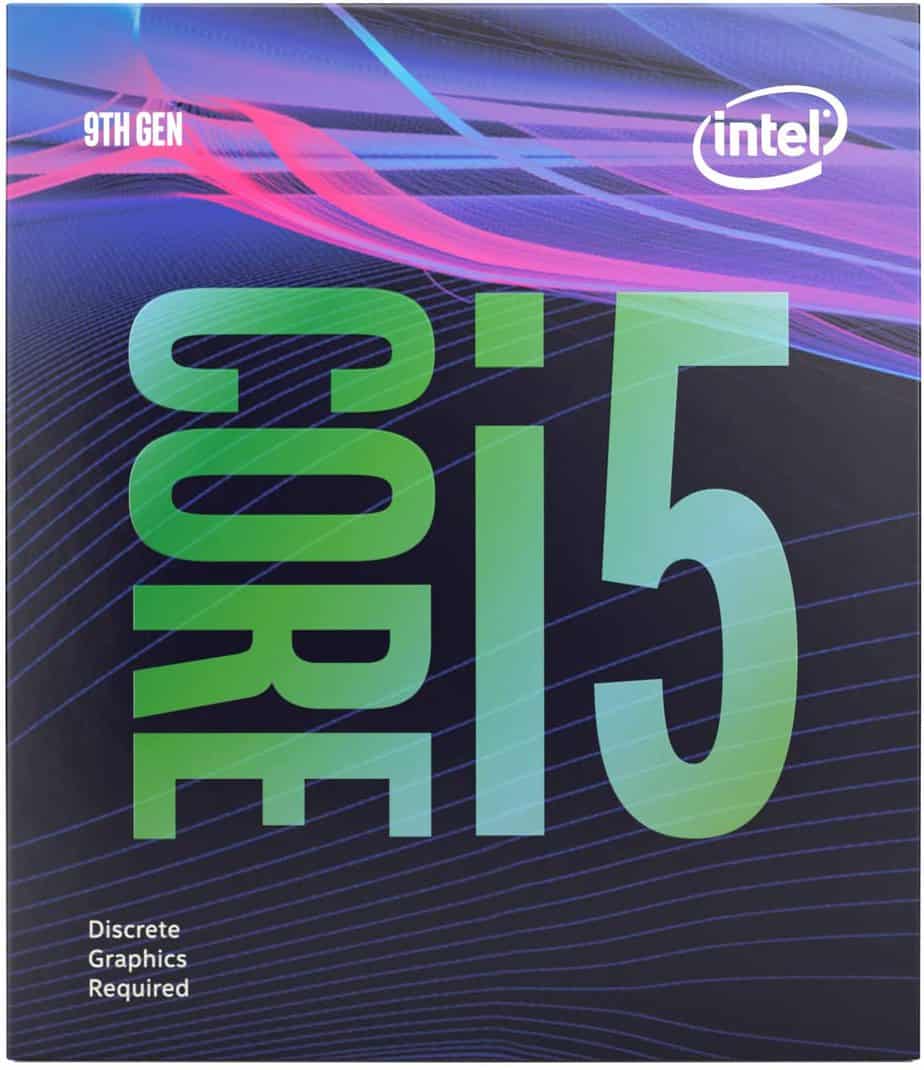
The i5-9400F brings value to the table by leaving out the iGPU, a component which is almost useless when you have a dedicated GPU. Whilst this CPU can multitask, it’s not it’s strong suit.
- Great price
- 6 single cores are ideal for gaming
- 4.1GHz boost frequency
- 9MB Intel Smart Cache
- Can’t be overclocked
- Not suitable for multitasking
- No integrated Intel graphics card
If you’re looking for a CPU that performs in the same league but doesn’t cost the same, the Intel Core i5 – 9400F might be your option.
For starters, this is a stripped-down version of our previous i5 K-Series pick, but the good thing is that the stuff that Intel has chosen to omit in this design doesn’t affect gaming performance. For instance, the integrated Intel UHD 630 graphics card is gone, bringing the price down, but you’ll be pairing it with a discrete GPU anyway, so no harm, no foul, right?
That said, you do lose out on a chunk of clock speed from one i5 to the next, leaving you with a base frequency of 2.9Hz, a little below the desirable rate for gaming. However, simply flick on Turbo Boost in the BIOS, and your max frequency hits highs of 4.1GHz. This should enable it to handle gaming at 1080p and 1440p, but you might have to tweak some settings at 1440p, especially if you’re running the game on high presets. However, you can pair this CPU with the best gaming RAM and give a boost to your overall setup.
One more minor downside to the entire F-Series is that they’re not unlocked, which means that they can’t be manually overclocked. So, if you’re a PC enthusiast looking to overclock their components and push their build to the extreme, this CPU will hold you back from doing so.
However, considering its performance and the price tag it comes with, it’s one of the best LGA 1151 CPUs to get your hands on if you’re putting together a budget PC.
What users had to say about the i5-9400F
Another verified purchaser of the 9400F had this to say on Amazon: “This is probably the cheapest processor on the market that won’t bottleneck your graphics card. I did some early testing with an RX 5700 to see if there was any sign of bottlenecks caused by the CPU. What I found is that I was getting the same performance as tech sites were with the RX 5700 where they were using the i9-9900k processors. It’s possible that perhaps an RTX 2080 might be too much for it, but even that I doubt, and if it were, the bottleneck would probably be minimal”
Best Budget LGA 1151 CPU

- Cores: 4
- Threads: 4
- Boost speed : 4.20 GHz
- Base speed: 3.60 GHz
- L3 Cache: 6 MB
- TDP: 65 W
- Platform: Intel (LGA 1151)
The 9100F is the bottom of the barrel when it comes to the 9th generation. This CPU is great for single threaded tasks, and would be perfect for a home server or game server.
- Great clock speeds
- Affordable price point
- 4 single cores
- Includes a cooling fan
- No integrated graphics card
- Can’t be overclocked
- Not too capable of handling parallelizing workflows
Our final CPU for LGA 1151 socket types is one of the best i3 units you can buy. It is not exactly stacked with hardware, containing only four single-threaded cores, but it has all it needs to supplant your old processor and keep you gaming on that LGA 1151 motherboard for at least a few more years.
What still impresses us about the i3 9100F is its clock speeds. It bottoms out at 3.6GHz, which is beyond the minimum requirement for some snappy gaming, and it can be boosted to an admirable 4.2GHz when you need some extra juice.
Burdened by that ‘F’ suffix, you won’t be able to tweak performance with any manual overclocking, so it’s by no means an enthusiast unit. However, if all you’re worried about is the capacity to run games, the i3 9100F is a fantastic budget option.
Much like our second-last pick, this i3 unit doesn’t include any integrated graphics facilities, but it does come with a cooling fan, so if you like to keep a chill, quiet case, it won’t disappoint.
What users say about the i3-9100F
One person who purchased this CPU back in 2020 had this to say on Amazon about the 9100F: “This processor is amazing. I did a lot of research on my son’s computer. He is an avid Fortnite player, and likes, more like, loves performance!
But, gee whiz, I can’t afford to pop $1000 every time new games come out? Well, the current gaming computer wasn’t horrible, but it’s been like 8 years since it was majorly upgraded, and it makes a whirlwind of a difference!”
Is the LGA 1151 platform still good in 2024?
It’s all well and good picking up a CPU to suit the socket, but how well does the LGA 1151 Socket fit into modern-day computing?
Although LGA 1151 was at the pinnacle of technology at the time, it has fallen behind the advancements of the modern day. While the 1151 socket does support DDR4, the official support speed is pretty slow, at 4000MHz max. You’re also coupled with the lower-end PCIe GEN 3 version, meaning slower M.2 speeds and less support for higher-end modern GPUs. While these issues aren’t too glaring right now, technology is advancing rapidly – it might become a much bigger issue shortly.
We advise not to build a brand new rig on the LGA 1151 socket, but if you already have a system and are looking to spend a minimal amount on the upgrade, a new LGA 1151 CPU might be your best bet. Here’s how to pick the best LGA 1151 CPU.
How to pick the best LGA 1151 CPU
While the LGA 1151 socket supports CPUs that are from 2018, that doesn’t mean they don’t provide value, and simply throwing away your money on any CPU isn’t recommended. There are some factors you need to consider before choosing a CPU and to make things easier for you; we’ve listed some of them below.
Compatibility
The first thing you need to ensure is that the CPU you choose is compatible with the LGA 1151 socket. This is important as there are two LGA 1151 sockets: the first and the second. The first version is compatible with Skylake and Kaby Lake CPUs like Intel i5-7287U, while the second version (revision) supports Coffee Lake CPUs like Intel i7-9700T. So, make sure you’re choosing the correct CPU for the correct socket, and mismatching could damage the processor or the motherboard.
Overclocking
While most people won’t generally go for overclocking because it requires setting the fan curve, adjusting the voltage, and other technicalities that can damage the CPU, it is almost a given for hardcore gamers and creators who want to squeeze out every last bit of performance from their CPUs. That said, Intel processors denoted with “K” come unlocked from the manufacturer, making them easier to overclock. So, if you plan on overclocking to make the most of your system, you should go for a “K” version.
Cores and Threads
Another important aspect to consider is the cores and threads. The cores are responsible for all the processing, and each core could have multiple threads, which is called hyperthreading. This enables your setup to effortlessly handle various processes running in parallel. So, if you plan on running tasks requiring multi-core recruitment, go for a CPU with more cores and threads.
Other than physical differences, new architecture means a CPU is more energy-efficient, able to accommodate a greater number of cores, may have an enhanced thermal treatment, and even feature entirely new processes.
Multitasking
When they talk about multitasking in a computational context, people mean the CPU’s ability to run different software in parallel with full functionality in each application without the risk of crashing. For example, if you’ve got a handful of tabs open, you’re listening to music, live streaming, and playing games simultaneously; that’s multitasking.
As we mentioned earlier, hyperthreaded cores are fantastic at multitasking. They’re the jugglers of the tech world. The more threads you have, the more they can handle. Rudimentary multitasking is essential to everyone these days, but it is never as important as it is for content creators.
FCLGA 1151 and LGA 1151: What’s the difference?
Although it sounds complicated, they’re the same thing. FC just stands for Flip-chip, which is the sort of architecture for the socket. So don’t be put off if you see the two different abbreviations floating around, they both mean the same thing.
FAQs
What is the most powerful LGA 1151 CPU?
The most powerful LGA 1151 CPU is the Intel Core i9-9900K processor, which offers 16MB of cache, up to 5.00 GHz boost, and a 14nm chipset. This should be capable of handling 1080P gaming on high to medium settings and enable efficient multitasking.
Is LGA 1151 still good?
The LGA 1151 socket can support up to 9th Gen Intel processors, and we’re currently experiencing 14th Gen Intel processors that use the LGA1700 socket. So, while this socket may not cater to the latest generations and has its limitations, the high-end CPUs it can support (i9 – 9th Gen) are still kicking and making a name for themselves. On top of that, if you want a budget build, this combination might be suited for you.
Our Verdict
The Core i9-9900K is the best LGA 1151 CPU in our book, thanks to its fantastic performance apart from it’s age limitations, you’re on for a winner if you can snag it at a lower price.
Technology is progressing at a rapid pace, but it doesn’t mean the older tech is out of commission as soon as new technology is introduced, and the LGA 1151 motherboards aren’t quite out of the race just yet, though they aren’t far off. That said, the best CPU for LGA 1151 is the king of old, the Intel i9-9900K, and there are a handful of reasons for that. First, it has 8 cores and 16 threads which should make it a beast at handling parallel workloads as well as delivering top-notch in-game results.
On top of that, it has a turbo frequency of 5.00 GHZ, and it can be overclocked to go beyond that, which should ramp up its processing capabilities. To wrap things up, it has a large 16 MB L3 cache, which, combined with a fast SSD and good gaming RAM, should help it quickly work any task you put in front of it.


